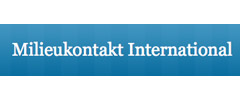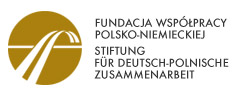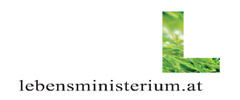Energy field visit: Possibilities for energy saving measures for five pilot projects in Belarus
Project “Developing multi-stakeholder cooperation in the areas of water, waste and energy efficiency in Belarus“
11.11.2008 |Tatiana Deriviago

From October the 13th untill October the 16th “Women in Europe for a Common Future” (WECF) together with its partner organization “Eco project Partnership” organised a field visit to Belarus to assist local pilot communities in developing the energy saving measures for future implementation of the pilot projects which will serve as an instrument for community development within the project areas. Five pilot communities (three schools, a dacha and a block of flats) were visited during this trip. The visit was organised in the framework of MATRA project “Developing multi-stakeholder cooperation in the areas of water, waste and energy efficiency in Belarus.
The trip members consisted of Mr. Gerhard Schmid, independent energy expert of “EURA - INGENIEURE – SCHMID”, Germany, Mr. Laboda Sergej, translator, Mrs. Tatiana Dereviago, Project Officer Belarus from WECF, Mrs. Natalia Andreenko, Project coordinator of “Ecoproject Partnership” and representatives of communities’ relevant persons (directors, teachers, community leaders, engineers, an electrician, etc).
The objective of this trip was to continue the discussion with local communities on early proposed projects’ options on energy saving and energy efficiency. Another important objective was for the energy expert to conduct a rapid energy assessment of the communities in order to understand the energy consumption of the buildings as well as to identify priority needs and report the findings for five pilot communities.
The team visited five local communities: three schools in different cities of Belarus, a dacha in Fannipol and seven flats in a block of flats in the city of Gomel during this trip. In addition five stakeholders’ consultations were conducted and official meetings were held with the local government and school administration to discuss the feasibility study and energy consumption profile. Two evaluation meetings, one in Minsk (Belarus) and one in Munich also took place to discuss priority actions for these communities.
Main findings and Recommendations
Community 1: a dacha in Fannipol, a village about 15 km away from Minsk.
The energy expert Mr. Schmid investigated the energy-saving potential of the dacha. As a dacha is used only in the summer time there are not many recommendations concerning the energy saving. The discussion was initiated into the possibilities to build a simple solar collector to heat the water and use it in summer for bathing. Now for water heating the dacha owners use electric boilers. As the price of the electricity is too low (by international standards) about 4 cents per kWh from an economic point of view the building of the solar collectors is not profitable at the moment. The cost per a collector (S= 3-6 m2 and the storage: 150 – 300 Liter) will cost approximately 5000 € per dacha. As a solution to the reduction of the cost of the collector “Do-it-yourself solar thermal projects” was proposed to be organised. In this case the costs for the collectors will be reduced by using home-made materials.
Communities 2 – 4: three schools in different cities of Belarus *(community 2: Gymnasium № 19, Minsk; community 3: School № 12 in Novopolotsk; community 4: School № 1 in Gorodok).
The energy expert Mr. Schmid investigated the energy-saving potential of the schools.The schools have a big potential for energy saving and energy efficiency in heating. The most common problem in all three schools is that several rooms are too warm in a comparison with others which are too cold during the winter. In some rooms the temperature is as low as 6°C in the winter, and in some rooms - about 22°C – 24°C at the same time. The temperature of the heat carrier within the network delivery pipeline in the heating unit of the schools is estimated 55-61°C on the date of the measurement monitoring which is less than the standard norm of 85°C.
The discussions were carried out to demonstrate how the overall performance of a heating system in a school could be improved by the installation of temperatures regulators on radiators, resulting in energy saving of up to 30 % and a significant improvement in thermal comfort. A good solution for the schools might be an installation of a programmable thermostat. It will automatically lower the heat when the schools don’t need it, for example at night.

The energy expert proposed several energy saving improvements for schools like window sealing, replacement of the old woodwork, insulation of the walls, basements and roofs. For more information please see the report of Mr.Schmid to be downloaded from here.

The energy expert Mr. Schmid investigated the energy-saving potential of the building. The discussion raised questions about the replacement of the old joinery. In a lot of flats the inhabitants replaced their old windows with new more efficient ones. Due to bad insulation of the walls and in spite of well equipped windows the inhabitants suffer high humidity in the rooms. The excessive levels of humidity in a lot of the flats lead to mold. Mold often grows in rooms with high water usage and humidity, such as kitchens, bathrooms, laundry rooms, and basements. The energy expert made a presentation for the inhabitants “Can I control mold growth in my home?” and gave recommendations how to solve the problem.
Then the energy saving possibilities for the above stated flats were discussed and the energy efficiency bulbs in the entrance hall were chosen as the most realistic solution for this ongoing project. For more information please see the report.
The report is available in Russian and German and includes descriptions of the proposed energy saving improvements for each community.
Contact:
* Dr. Anke Stock: anke.stock(at)wecf.eu
* Tatiana Dereviago: tatiana.dereviago(at)wecf.eu
* Yulia Yablonskaya: yulia(at)ecoproject.org
* Margriet Samwel: margriet.samwel(at)wecf.eu
Related News
Meet the Winners of the Gender Just Climate Solutions Award at COP24
On the 70th anniversary of the Universal Declaration of Human Rights, we awarded Gender Just Climate Solutions Winners at the climate negotiations in Katowice, Poland
11.12.2018
Invitation: Gender Just Climate Solutions Award 2018
10 December, COP24 Katowice
04.12.2018
Getting to the Future We Want
4-7 November, Brussels: European Environmental Bureau’s (EEB) Annual Conference
12.11.2018
GoodFood4All
WECF and partners all over Europe start GoodFood4All Campaign
06.11.2018
#Ruralwomen: join our Women2030 campaign!
15.10.2018







































